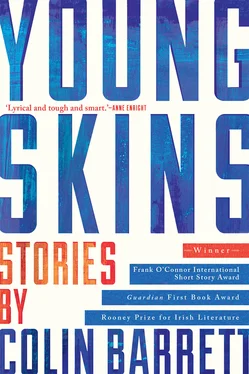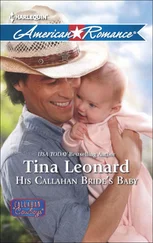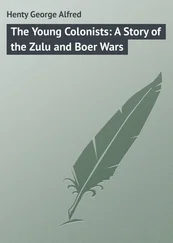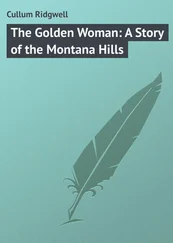I was billeted in a small cottage on the school grounds, and granted a modest stipend in exchange for executing my duties and staying sober. As groundskeeper I was tasked with keeping hale the clutches of flora decorating the institutional hillocks, ensuring the dumpsters were emptied on time, unlocking the gates in the mornings and keeping watch as the train of kids moiled in. I cut my hair neat and dressed in long sleeves, to conceal the tattoos that wound like black foliage down my arms. I carried a large, old-fashioned ring of keys and jingled them as I patrolled my appointed territories, advertising my approach to any boys risking a smoke in the bushes. In the school’s evening emptiness, seeking some kind of cosmic reparation for Ruckles, I fed the stray cats that foraged about the skips, and in turn they brought me blood tributes, depositing on my cottage doorstep the tiny mauled carcasses of baby birds.
I taught gym a dozen hours a week. Gym was easy; the boys liked the class because it was only technically a class. I refereed games of indoor soccer and volleyball from a sideline deck chair and had only to blast the whistle if things became excessively robust. The boys not sportily inclined I designated ‘stewards’ and left to their own devices at the back of the hall, reading comics or catching up on homework, so long as one of them threw the ball back when it went out of play. I unrolled long, hortatory riffs at the fat kids as they heroically inched up the climbing ropes, and I came almost to cherish the swampy funk of perspiration the boys shed as they disported.
The Sentimental Authoritarian put me in touch with the local AA, a small and hardy group of sick-of-their-own-shit degenerates who met once a week in the town’s Catholic church hall. Beneath fluorescent lights we recited the tales of our interminable fucking up. I listened and I talked and I listened and I talked, and I kept going back.
Winter came with a vengeance, as they say. The season felt like that, like a long, hard reprisal, exactingly meted. Snow whipped down in record quantities. The temperatures bottomed out, and the fallen snow stayed on the ground even as more fell. At night, the town river iced over in sections that came creakingly apart at dawn and floated downstream in jagged, table-sized panes. Cars fretted along at fifteen miles an hour on the high street and helplessly butted grilles. Now and then a lone pensioner was found frozen to death in their refrigerated council flat. I salted the lanes and macadam paths of the school, but every day a kid fell and pranged a knee or sprained a wrist. The stray cats died off and when the roads became impassable, the rubbish sat uncollected in frozen piles in the dumpsters, but no matter what I kept going to AA.
She showed up the first Sunday evening in December.
Mellick, the elder of our group, was up top, talking. The rest of us faced him, pitched and slumped in informal rows on foldaway chairs. The hall was large and bare. Along one wall was arranged a table bearing canisters of coffee, a bag of disposable plastic cups and a plate of inedibly stiff ham triangle sandwiches. Three ancient radiators clanked and burbled along the wall. Overhead, the ceiling lights buzzed, low and insinuating as a defect of the inner ear.
Mellick was seventy. He had drunk for fifty years and been clean, now, five. He was short three fingers and looked like what he was, a survivor. Like many survivors he held himself up as his own worst example. He was telling us again about the fingers. As he talked, he held his maimed right hand in his undamaged left. Where index, ring and middle finger should be, there were only the abrupt drumlins of his knuckles, the scar tissue whited over. I was up in the first row, looking right into Mellick’s elongated, pitted face. I could see the battered horseshoe of his bottom row teeth, pocked with black metal fillings and rufous with rot.
She was sitting to my left. She was pale, wrung-eyed, copying unconsciously or not Mellick’s arrangement of hands; one held in the other, fingers curled round showing bitten nails coloured with chipped blue nail polish. She was hunched over in her chair — head low, shoulders tucked in and braced — as if awaiting a blow to the nape. She was breathing through her mouth, eyes fixed to Mellick as he unpacked his old story.
Mellick was forty-one when he lost the fingers, he said. He was in a shed on his farm, shearing planks of timber while drunk, drunk and angry, why he can’t remember, of course. He said he was hurling the lengths of wood into the spinning bandsaw, splinters going everywhere, into his hair and mouth and eyes, the blowbacking sawdust rendering him practically blind, when hand met saw.
It was over in an instant, Mellick said. Before he knew what had happened he was staring at the pumping red mess of his hand. Mellick said he had no idea how many fingers were gone; the spewing blood and the luminosity of the pain made it impossible to get a tally straight in his head. The pain, he said, was like a presence, a separate body or entity, standing there in the shed with him. He was scared, staggering around, looking for however many fingers he could find and getting rapidly woozy, knowing this wasn’t a good sign, dazedly combing the straw and shaving-matted floor and all the time convinced he was going to bleed to death. And he did pass out, but he did not die, and by the time anyone knew what had happened the family cat (oh, Ruckles!) had already found the three severed fingers, eaten one until it was just a spur of bone with a nail attached by a thread of gristle, and stolen off with the other two.
‘And did I learn anything from this experience?’ Mellick asked.
Nobody said anything. I finicked with the cuffs of my shirt, crooked my head and brought the woman into my peripheral field. She was my age, maybe, early thirties, maybe younger, depending on the degree of damage she’d inflicted upon herself.
‘I was back on it the second I was out of the hospital,’ Mellick answered. ‘It didn’t so much as dent my appetite. Not for years, not for years, not for years.’
He cracked a mirthless smile. I did too. For this was what we were here for, the hardscrabble tutelage of those come out the other side of their damage.
The meeting over, a few of the Anons hovered by the coffee table, husking themselves into their jackets. There was motiveless chatter about the weather. After an hour of intensive gut spilling, it was nice to impersonate normal people.
‘Excuse me,’ she said to me.
Her hair was a wan, unconvincing brown; one prompt spook away from turning completely grey. She had a round face, pale eyes and a faded scar on her nose, a blanched diagonal seam, neat, across the bridge, like a tiny rope burn. She was not good-looking, but there was a watery indefiniteness to her features, a pliancy, that just then appealed.
‘You’re Carmichael’s gym teacher, aren’t you?’
I winced but admitted I was.
‘Siobhán Maher. My boy is in your class. Anthony. He’s a second year.’
I didn’t say anything and she added, redundantly, ‘I’m his mother.’
‘Right.’
‘I didn’t know — I mean I don’t know if you’re allowed to say you know each other here?’ she said.
‘It’s supposed to be anonymous.’
‘That’s not really practical around this ways, is it though?’
‘I guess not.’
‘This is my first time,’ she said.
We stepped outside, into the bright white furnace of cold. I cupped my hands and blew. The hall was at the northern end of the church grounds. The church steeple, lit from below, loomed above a row of skinny elms. The snow had frozen into sparkling crusts upon the roofs and bonnets of our parked cars.
‘Anthony’s not the sportiest, I imagine?’ she said, trailing me as I crunched my way to my car.
Читать дальше












